Turkey: IS suspects held after Istanbul suicide bombing
- Published
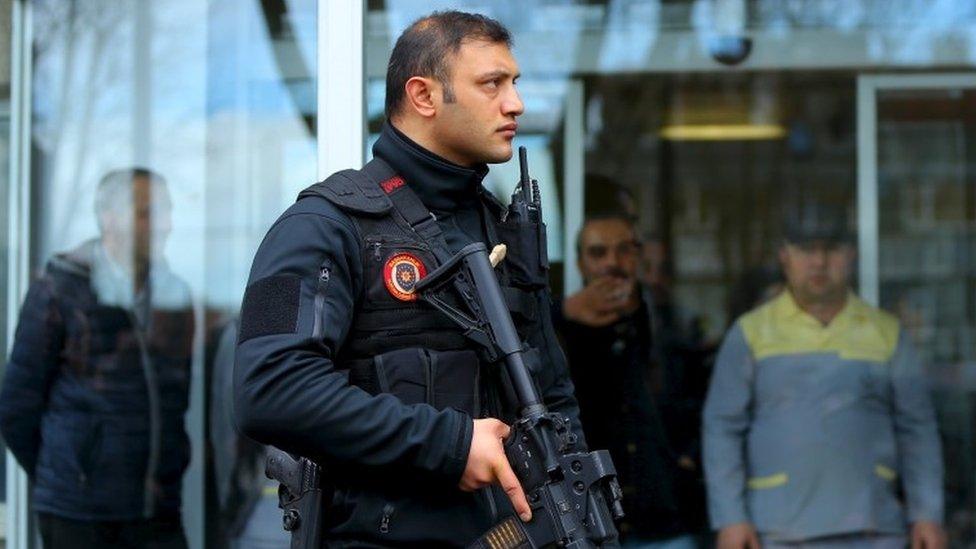
Police across Turkey have been rounding up Jihadist suspects while stepping up security around key tourist landmarks
Dozens of people with suspected links to so-called Islamic State (IS) have been arrested across Turkey following Tuesday's suicide bomb attack in Istanbul that killed at least 11 people including the bomber, officials say.
The death toll among Germans on Wednesday rose from nine to 10 - with five others in intensive care.
Three of those held are Russians thought to have contacted IS fighters.
The Turkish government has been accused of being slow to act against IS.
It is alleged by critics to have been preoccupied by fighting Kurdish rebels, allowing weapons and jihadists to cross the border into Syria.
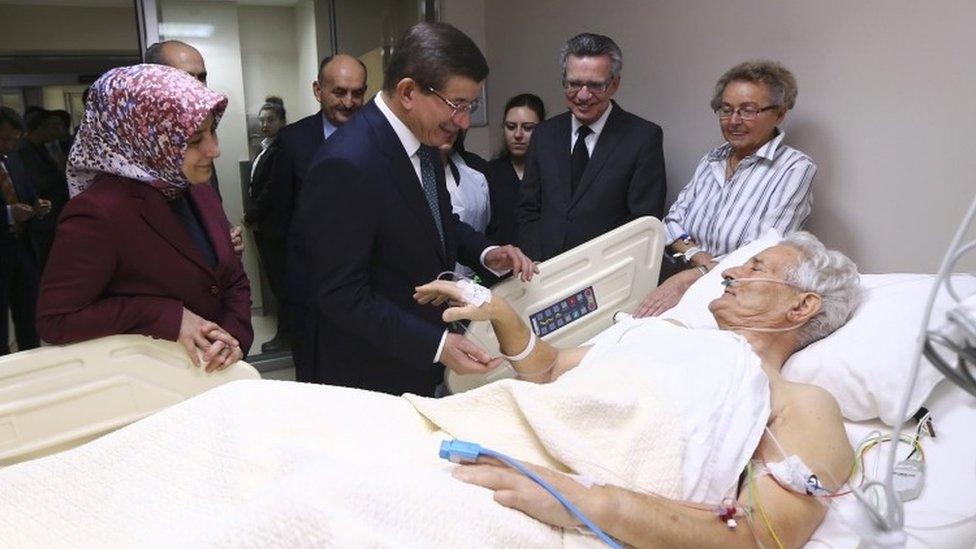
Turkish Prime Minister Ahmet Davutoglu (centre) accompanied German Interior Minister Thomas De Maiziere (2nd right) to visit victims of the blast on Wednesday
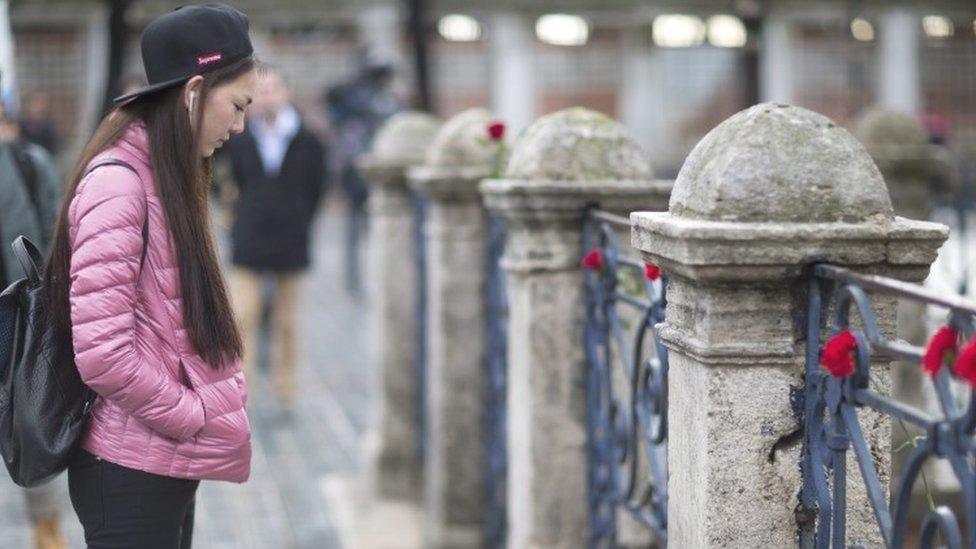
The people of Istanbul paid tribute to those who died on Wednesday
But the authorities insist that all militant groups will be fought with the same resolve.
Police operations
The bomber has meanwhile been named as 28-year-old Saudi Arabian national Nabil Fadli, who entered Turkey as a migrant.
Turkey's government said he was an IS activist based in Syria and part of a wider network.
The three Russian nationals arrested in the city of Antalya are reported to have been in contact with IS fighters. They were believed to have been seized along with documents and weapons.
About 60 suspects were taken into custody as part of police operations carried out in the provinces of Ankara, Kilis, Sanliurfa, Mersin, and Adana, the Anatolia news agency reported.
Turkish Prime Minister Ahmet Davutoglu said that his country would implement tighter security measures in densely-populated areas as a result of the attack.
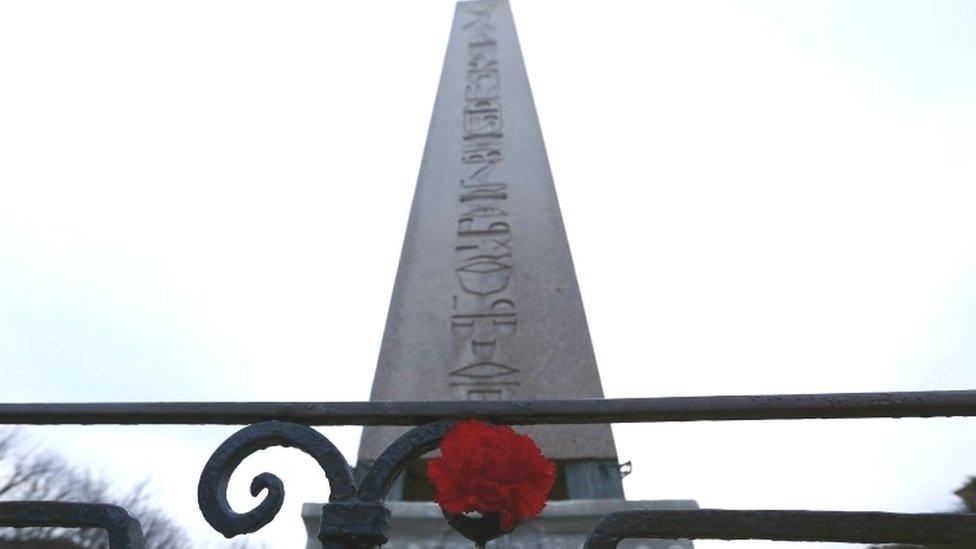
Carnations have been placed in front of the Obelisk of Theodosius where Tuesday's suicide bomb attack took place
The BBC's Mark Lowen in Istanbul says that IS has deeply implanted itself into Turkey - Tuesday's attack was the fourth bomb in less than a year blamed on the jihadists.
German Interior Minister Thomas de Maiziere has meanwhile said there was no suggestion that Tuesday's suicide attack specifically targeted Germans. On Wednesday he visited the site of the blast.
Mr de Maiziere's Turkish counterpart Efkan Ala said the suicide bomber was not on any wanted list but had registered with the immigration authorities. Mr Ala said the bomber had been identified by a sample of a finger taken from the blast site.
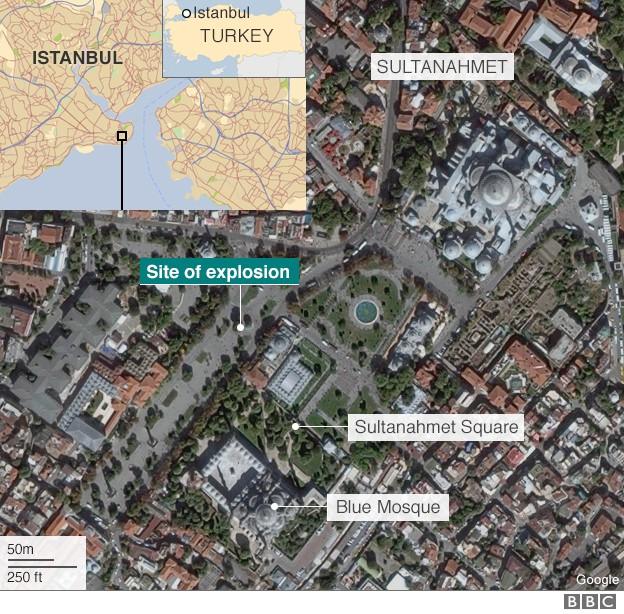
He said nearly 36,000 people from 124 countries were now on Turkey's no-entry list.
Hurriyet Daily News on Wednesday, external published what it said was a CCTV image of the bomber on Wednesday. It also reported that Germany has sent a team of specialist investigators to probe the attack.
Meanwhile tour guide Sibel Satiroglu described the moment the bomber detonated himself after merging into a group of German tourists visiting the Obelisk of Theodosius, one of the Istanbul's most popular attractions.
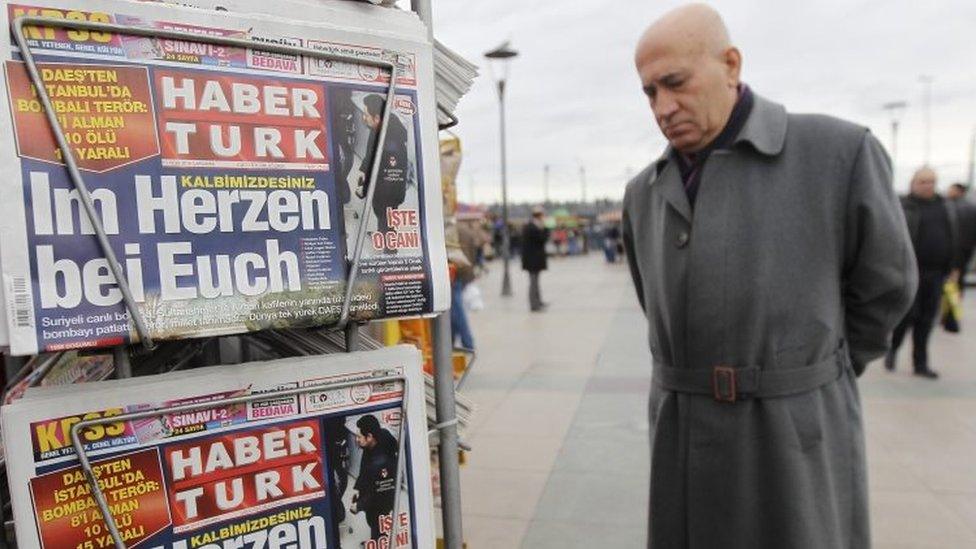
German version so Turkish newspapers describing the attack were available for sale in Istanbul on Wednesday
She described hearing the clicking sound of the bomb being prepared for detonation by a young bearded man who looked like a Turk. She said he had an innocent face and was wearing modern clothes.
"I saw the young man pull the pin and I shouted 'Run!' in German, Then we started to run away, and the bomb instantly exploded."
President Recep Tayyip Erdogan said on Tuesday that his country was now the "top target for all terrorist groups in the region".
Germany currently provides the largest number of tourists visiting Turkey, external.

Turkish media reaction to the bombing
Hurriyet: "How many 'sleepers' have been dispersed to the cities of our country under cover of Syrian refugees? It is as if we are sitting on a bomb ready to explode and the main reason for that is nothing other than turning a blind eye to these jihadists."
Yeni Safak: "Targeting Turkey's most important tourist centre is a new type of act... It is a strategic point [by the jihadists] to ensure their message is heard around the world."
Sozcu: "We used to watch the terror attacks and explosions in Syria, Iraq, Lebanon, Yemen, Pakistan and Afghanistan in dismay; now we are stuck in the middle of dismay!... The government is no longer capable of providing security for life and property."
Milliyet: "There is a message [in the bombings] to foreigners from the Jihadists that we will hit you not only in your own country but also in another country as well. The aim is to create an atmosphere saying do not come to Turkey - Turkey is dangerous."
Sabah: "We have more experienced and better equipped security forces against those who are trying to make Turkey look like Iraq or Syria... Those who see terror, violence and bombs as legitimate tools of politics will remain marginal today as always."

- Published12 January 2016
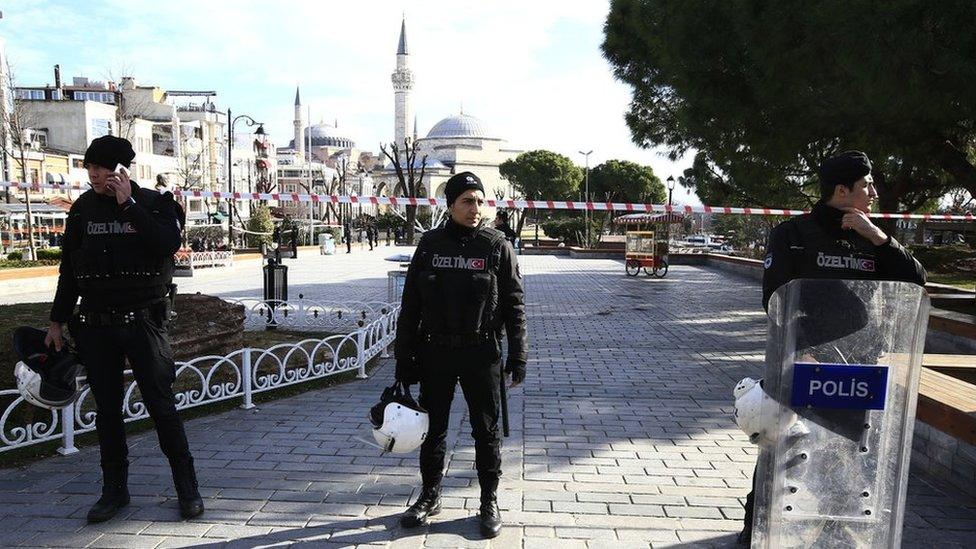
- Published12 January 2016
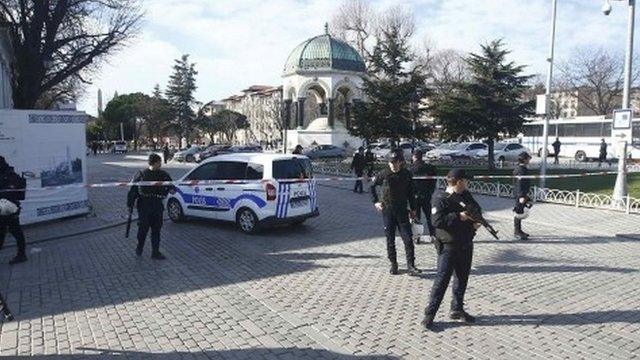
- Published22 August 2023
